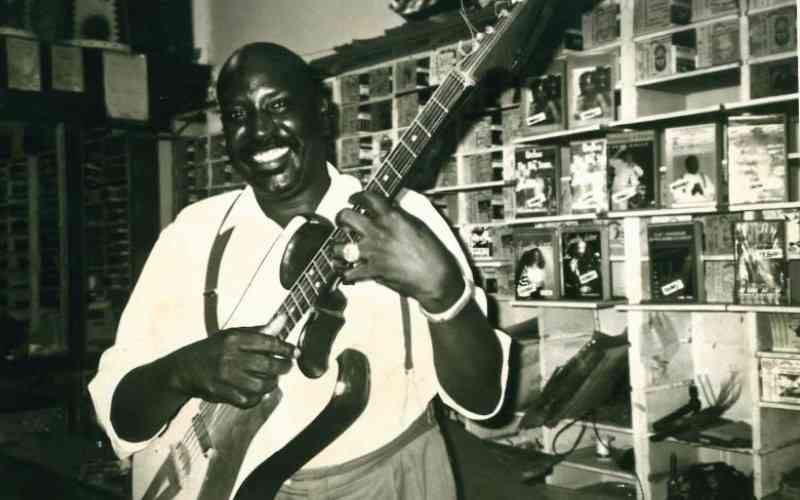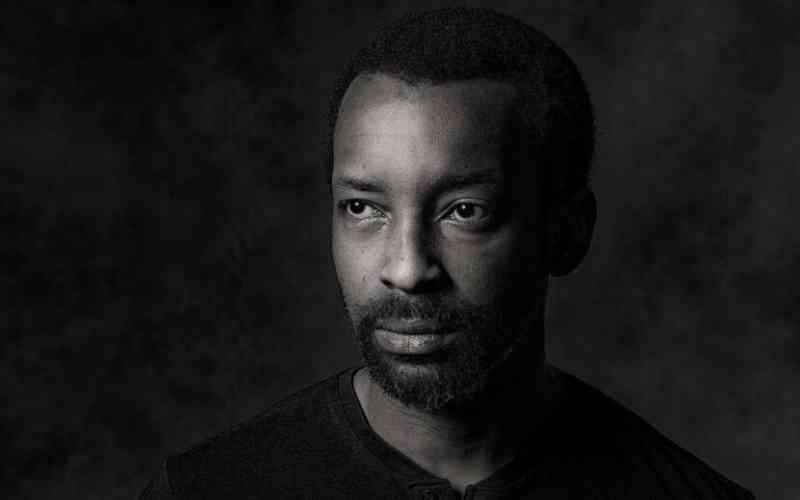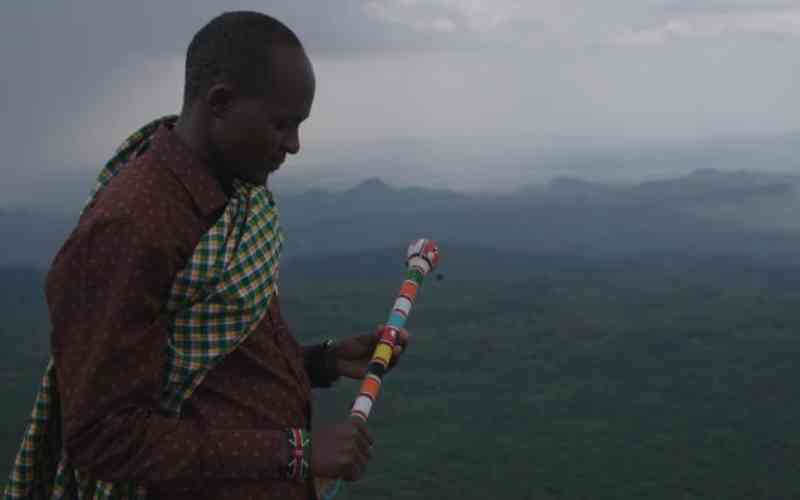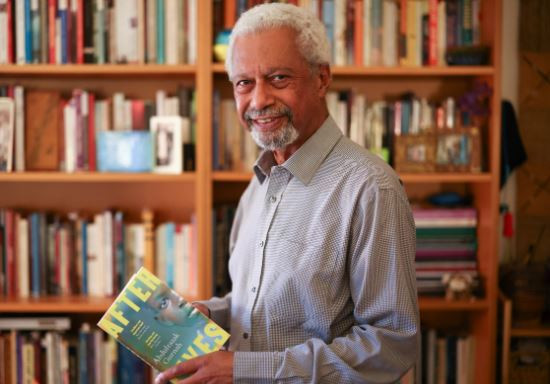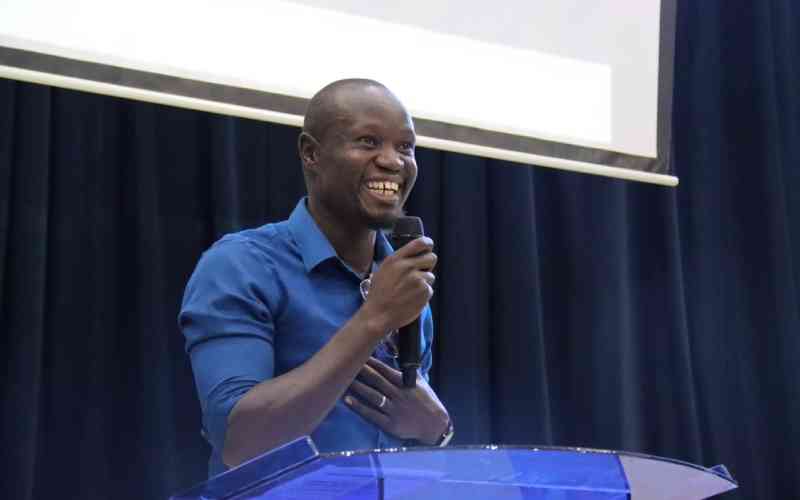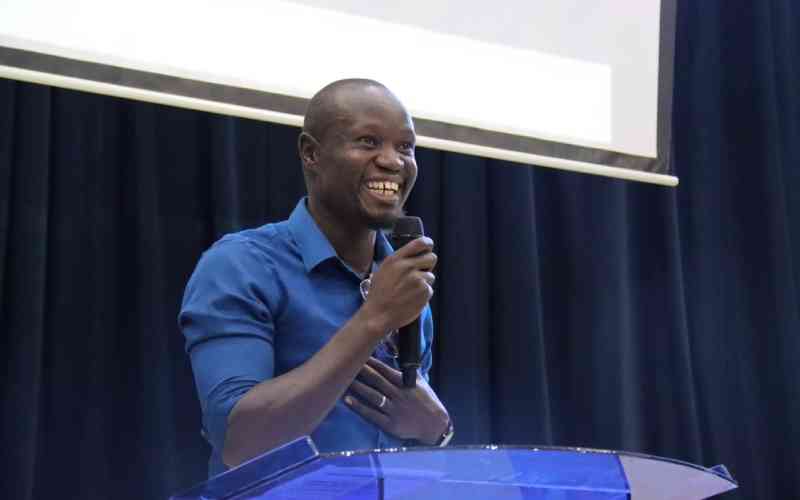
When we settle down for the interview with Peter Kawa, he has just come from a date with his wife of 11 years, Grace Kawa. He has high praises for her and references to the things they talked about during their date come up several times over the interview.
She is his manager, and he says he wouldn't be where he is today if she hadn't come into his life. It's clear where his priorities lie.
"Above everything else, I am a father and a husband - a family man," he says.
Kawa is one of Kenya's foremost actors and filmmakers, and this past season you may have watched a film on Netflix that he produced and that espouses those values - 'Christmas Love,.
It is the first-ever Christmas-themed film in Kenya's film history and is based on his life as a father, starring his real-life daughter, Neema Kawa. The film is a heartwarming story about a father who is struggling to find balance between work and family, just like he did.
In the film, the daughter asks why he is not in one of the pictures with him, just like it happened in his real life when he missed the baptism of his daughter and is not in her baptism pictures with her.
"A decision had to be made and I don't regret it. Even when I work too hard, sometimes work takes a back seat and we go all out and have fun. We spend a lot of time together with her," he says.
It's easy to see how his schedule can get away from him if he is not careful. He is a jack (and master) of many trades in his chosen field.
"After that, I introduce myself as an actor, filmmaker, talent manager and an entrepreneur in the creative industry," he says.
A curious thing about Kawa is how nearly everything he touches turns to gold - His first award was for his directorial debut in 2019 for the film Lost in Time, a psychological thriller which became the biggest film in Kenya that year.
Wearing a different hat, as her manager, he helped turn Azziad into one of Kenya's most successful content creators. His favourite hat to wear professionally though? "Acting," he says.
Kawa played Malik in the highly acclaimed 'County 49', a political thriller that was the most-watched premiere ever for any title in Kenya when it debuted on Showmax in 2022. For that, he was nominated in the 2022 Kalasha Awards as Best Lead Actor in a TV Drama.
And it's because when he shows up, he leaves everything on the table. In episode 2 of County 49, there is a scene in which he has to fight seven people, all blackbelts.
"It was all choreographed and they were hitting me safely, but I insisted that they kick me for real where necessary so that it looks real and we save time because we did not have time to hide the shots showing that it didn't land. We rehearsed that from around 2 to 5 in the evening," he says.
"The next day I did another scene where I was fighting a guy called Mugo. We also fought for real there. We hit each other so badly but we had to continue for the sake of time. After that, I was so tired but that afternoon I had to finish the scene we had been rehearsing with the 7 guys so I shot for the entire afternoon as well."
Two days later he was in another fight scene, fighting in the same church that he got married in in real life. "It was like a 10-year anniversary!" he jokes. "So let's just say that for one week my body was aching all over, my fingers were hurt and swollen and my knees could barely function."
And how does he feel about all the pain he had to endure for County 49? "One of the highlights of my career," he says.
Dipping his toe in international waters, he was part of the cast of South Korea's 2021 blockbuster 'Escape From Mogadishu', was also in 'Uradi', 'Nafsi', and 'Country Queen' on Netflix.
Kawa usually portrays the villain, and a very believable villain, at that. It is an interesting contrast to the real-life Kawa, who is a committed Christian and describes himself as a good guy and an empath.
"I want to believe I'm a good guy. Sometimes it is hard for someone to say that. It sounds very egocentric, but truth be told I have always believed it," he says.
That is probably because it is something he consciously decided to be, as he almost became not so great of a person.
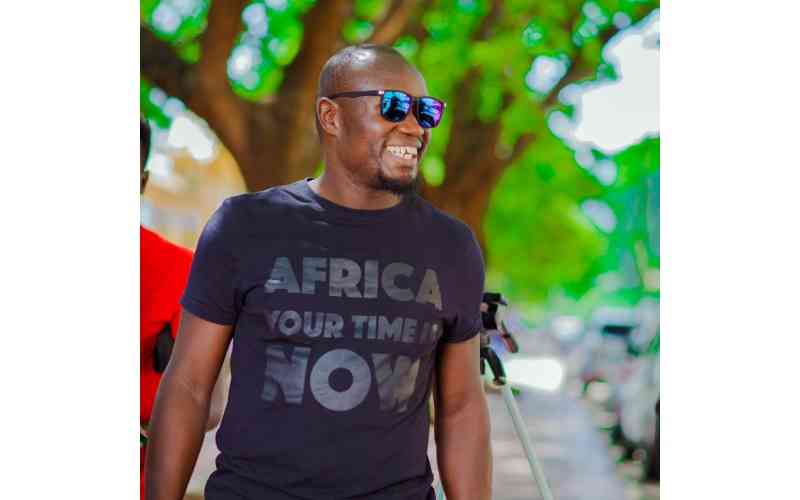
"Growing up, one of the things that I remember is that I was a very naughty boy and a kleptomaniac. I used to steal from my parents a lot. I knew how much every coat and handbag contained. Things changed when I saw my school fees structure for form 1," he says.
"I was shocked by how much they had to pay for my education and that is when I decided to change. I started telling them things like, 'You remember that 200 you lost that time?' I just started confessing. That is one of the highlights I remember about my childhood. The fact that I changed for the better because I was headed the wrong way."
When he was goaded into the drama club towards the end of high school, it sparked something in him and he realized that he could do it.
In campus, he realized he wasn't really keen on the course he was pursuing and started looking for opportunities to get into acting, but when his first real acting opportunity came it clashed with an exam that he needed to do in order to finish his course.
"I made the life-defining decision to drop out of college and become an actor. Had I not made that decision, I don't know who I would be today but the moment I made that decision I knew I had crossed a bridge. It has never been the same and it has defined who I am. That was almost 18 years ago," he says.
18 years later, however, he is back to school, doing a diploma on creative economy and cultural studies. "Having dropped out of school to become an actor means I do not have any papers to show for my having been in college, but right now I'm in the middle of a course. I want to finish and go back to my mum and say, 'You know what, even if it is 18 years down the line, I have finished.'"
Proving that careers in the creative arts are viable has always been important to him and he considers the fact that he has been able to do it as one of his biggest accomplishments.
"When I joined the industry, I realized that it wasn't very clean, but I set out to prove to parents, including mine, that this is a job just like any other. So I got money as an actor and I would bring back money to show them that it pays. 18 years down the line I have done so much for them back at home and they are so proud of what I am doing," he says.
Alongside that is the fact that he wants to be remembered as someone who gave, who shared what he had in terms of mentorship and helping people's careers along.
A lot of people on our screens in Kenya can point to him as being the first person who gave them the opportunity and helped them along, which is how his talent management came about.
"I am proud of the people I am managing and that it has been a successful journey. I am very happy with what Azziad is doing and she has become a beacon of hope for many young people. Many parents are also realizing that their kids can earn money from such a career," he says.
"However, having money is very different from sustaining it, so that is another thing I am trying to work with Azziad on to prove to the world that you can have the money and you can also find a way to use it for good, become a better person and build empires. If you look at what Azziad is doing right now you will understand what I am saying."

If he could have a drink with anyone, it would be 20-year-old Peter Kawa, to tell him something few would be able to tell their younger selves, a testament to the things he has managed to do: "There is so much I would like to tell him, just to remind him that he is on the right track, because I set out with a plan and here we are! I am living that plan now."
 The Standard Group Plc is a multi-media organization with investments in media platforms spanning newspaper print
operations, television, radio broadcasting, digital and online services. The Standard Group is recognized as a
leading multi-media house in Kenya with a key influence in matters of national and international interest.
The Standard Group Plc is a multi-media organization with investments in media platforms spanning newspaper print
operations, television, radio broadcasting, digital and online services. The Standard Group is recognized as a
leading multi-media house in Kenya with a key influence in matters of national and international interest.


